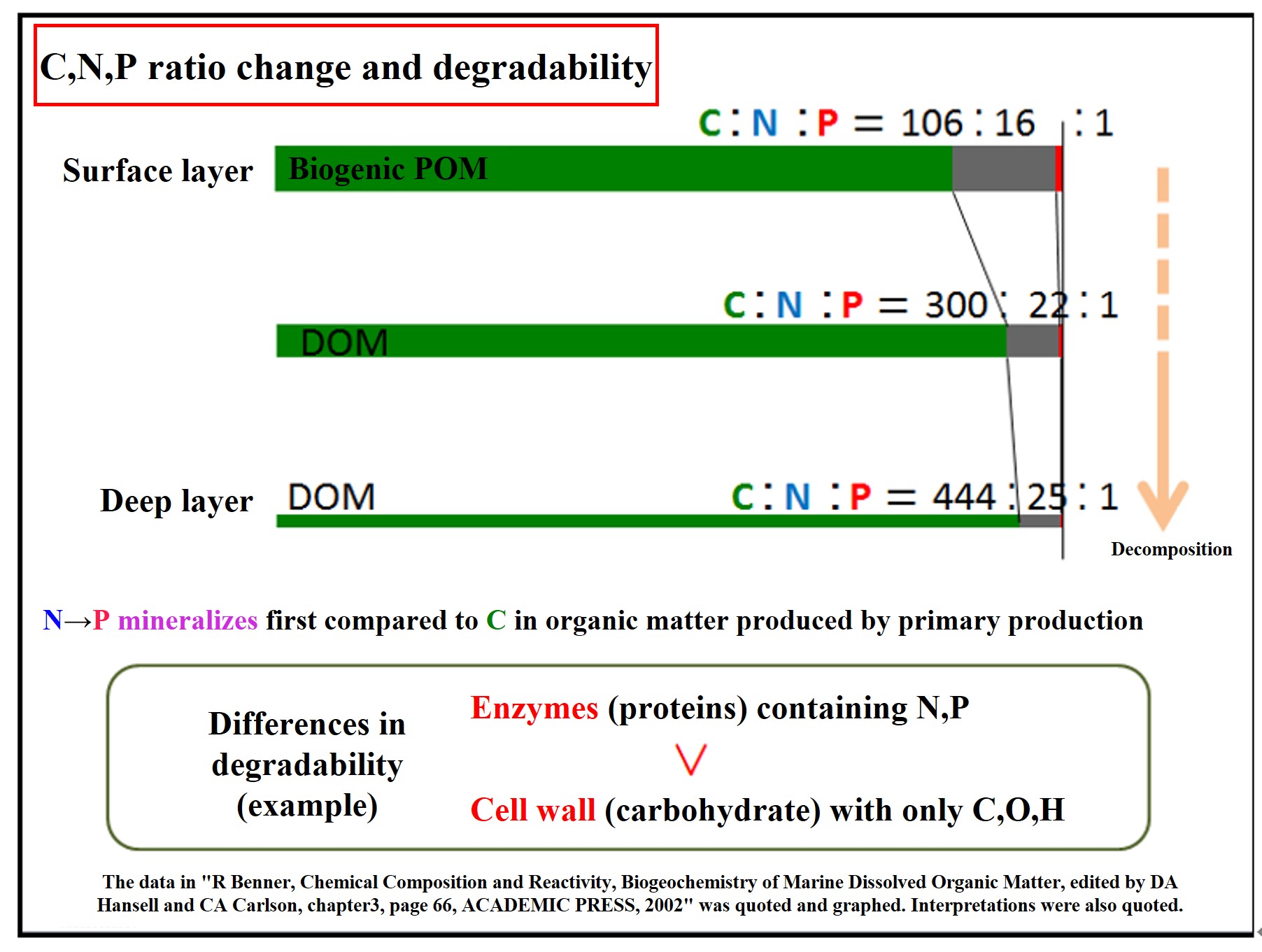Changes in carbon, nitrogen, and phosphorus composition ratios of POM and DOM in seawater
Remember that the Redfield ratio is "the average composition ratio of elements in a biological particle" (*). We will explain how the C:N:P ratio changes as non-living matter undergoes decomposition.
*It varies greatly depending on nutritional status and species. Why does it deviate from the Redfield ratio? is the subject of research interest.
When an organism dies, do the components of its organic matter decompose uniformly? Among the components of living organisms, "cell walls" have a tough structure and will not decompose easily. Enzymes, on the other hand, are highly reactive and will decompose quickly if immersed in seawater. Carbohydrates and lipids stored in the organism as a source of energy are also likely to be broken down quickly, as they are also valuable sources of nutrients for bacteria.
In fact, the elemental composition ratio of the biogenic POM is C:N:P = 106:16:1. When this organic matter decomposes to DOM, its elemental composition ratio becomes about C:N:P = 300:22:1 (Figure below). Furthermore, DOM which has spent a long time in deep water has an elemental composition ratio of about 444:25:1. This is because lipids and proteins in organic matter decompose quickly, while the cell walls of carbohydrates decompose slowly. Since carbohydrates contain only C, H, and O, if the cell walls made of carbohydrates are spared from decomposition, C is likely to remain in the organic matter. Therefore, after the biogenic POM dies, the C ratio in the organic matter undergoing decomposition increases over time. (Chemical composition and reactivity marine dissolved organic matter, edited by Hansell and Carlson, chapter 3, page 66, Academic Press, 2002)

As nutrients (nitrogen, phosphorus, and carbon) are removed from these organic materials, inorganic nutrients (nitrate and phosphate ions) are regenerated in seawater. The nutrients regenerated in seawater are again used for biological production. You can imagine that the distribution of nutrient components in seawater is also complex. The nutrient cycle will be explained in later chapters.

